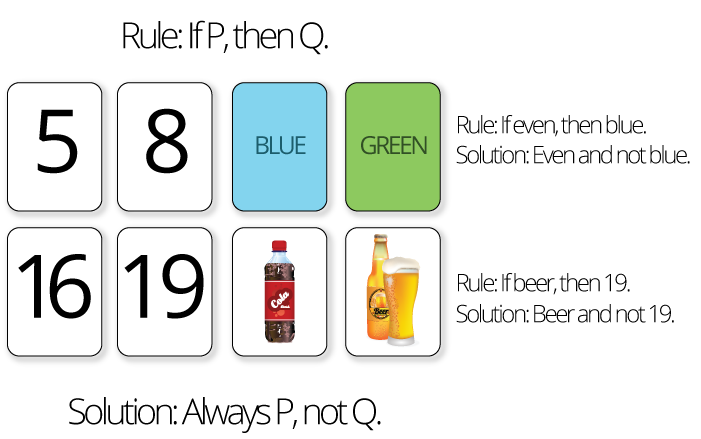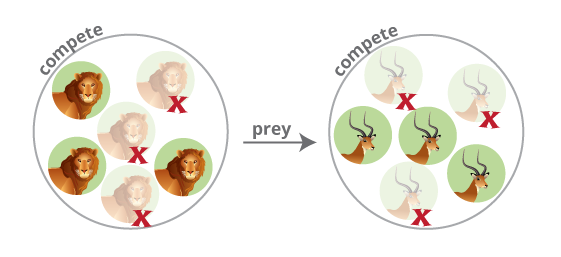Darwin’s Theory of Evolution
I really only learned about this through Genetic Algorithm. But maybe also high school Biology class. But revisiting in PSYCH101.
Common Misconception
Evolution works at the level of the individual, not the species. Lions may eat antelope, but lions do not compete with antelope to survive. Lions compete with other lions. Individual lions and antelope that are successful reproduce and pass on their traits whereas those that fail go extinct.
Are humans more evolved than other species?
From PSYCH101: NO. This is a common misconception. To suggest that humans are more evolved would require that humans are somehow a goal of evolution. But evolution is a mindless process that has no goal. Evolution has no preference for one species over another.
The theory of Evolution can explain all the diversity of life on our planet, with 3 simple principles:
- Heredity: Children receive the properties of their parents
- Variation: Variety of traits present in the population or a means with which to introduce variation
- Selection (survival of the fittest)
It explains Extinction, Speciation (how species are created), and why species are so well suited for their environment (Adaptation).
How does variation happen, where the offspring seems to have different traits? Two reasons:
- Recombination: the parent’s individual DNA is scrambled up when creating gametes (sperm and egg cells) and is then mixed together with their mates DNA during sex
- Mutation: the random mistakes in copying that are made during cell replication.
Social Darwinism
Now this gets interesting…
Social Darwinists believe in “survival of the fittest”—the idea that certain people become powerful in society because they are innately better. Social Darwinism has been used to justify imperialism, racism, eugenics and social inequality at various times over the past century and a half.
https://www.history.com/topics/early-20th-century-us/social-darwinism
Evolution in Biology
Why Should We Care About Evolution in Psychology?
It’s just another perspective to help us understand human behavior. Refer to the Behavior matrix, where there are 4 questions.
Standard approaches in psychology focus on only the two types of questions relating to Proximate mechanisms and their Ontological development.
However, mechanistic and developmental explanations only get us so far. We need to understand the function and the evolutionary history behind a behaviour to fully explain and understand it.
Humans do not have a mental adaptation for solving logic problems.
 I failed the first test, but the second one was so easy.
I failed the first test, but the second one was so easy.
The second problem simulates a social contract. The one portrayed in the video denotes permissions, a type of social contract that indicates who is allowed to engage in a behaviour and who is prohibited. Because the violation of social contracts in the ancestral environment was a recurring problem that compromised survival and reproduction, evolution has endowed us with a mental adaptation whose function is to detect cheaters.
